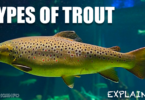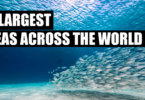An appealing world filled with marine life and brilliant colors lies under the glittering ocean. The “marine rainforest” or one of the most diversified and prolific ecosystems on our planet are “corals”. These complex undersea structures are essential to the way of life for millions of people. In this article, we’ll delve deeper into the fascinating world of coral reefs to analyze the benefits they provide to the earth and its inhabitants.
What Does Coral Do?
Many people are unaware of the essential roles that coral reefs play in maintaining marine life and the general health of our oceans despite being among the most diverse and dynamic ecosystems in the world. Some of the incredible advantages of coral reefs are explained below:
1: Ecosystem Engineers
Small, soft-bodied creatures called polyps build coral reefs by secreting calcium carbonate, which over time hardens to create a skeleton. Coral reefs provide an essential residence for a range of marine creatures, including fish, turtles, sharks, and others. For protection from predators, during the mating season, or when in quest of food, several bird species rely on coral.
2: Biodiversity Hotspots
It is sometimes referred to as the “maritime rainforest” due to its abundance of coral reefs. They cover only 0.1% of the ocean’s surface, yet 25% of all marine species call it home. The quality of coral reefs is closely related to the number and diversity of marine species in the adjacent ocean. Feeding dangerous predators like sharks and sea turtles, maintaining a delicate ecological balance, and housing a variety of marine species, corals are the main part of the meal.
3: Carbon Sequestration
Carbon storage is a lesser-known but crucial part of coral reefs. Corals’ calcium carbonate skeletons enable them to absorb and store large amounts of atmospheric carbon dioxide. Growing corals absorb carbon dioxide from the water, balancing the ocean’s carbon content and acting as a natural carbon sequestration strategy.
4: Shoreline Protection
Coral acts as a natural barrier that protects the coast from the destructive forces of ocean waves and storms. For instance, the coral reefs of apple trees in hurricane-prone areas provide valuable protection against soil erosion and flooding.
5: Medicinal Potential
In addition to their ecological importance, coral reefs also hold promise in the medical field. A variety of marine organisms associated with corals have developed potential pharmaceutical compounds. Numerous creatures that live on coral have developed special defenses to fend against predators and illness. Some of these substances have demonstrated promise in the treatment of a range of human ailments, such as cancer, pain, and viral infections.
6: Tourism and Economic Benefits
Coral reefs are magnets for tourists and recreational divers, bringing significant economic benefits to coastal communities and nations. Visitors come from all over the world to see this diverse underwater ecology, which fuels a thriving tourist sector. The disappearance of these reefs will have significant negative economic effects on the fishing and tourist sectors.
7: Indicator Of Environmental Health
Coral is very sensitive to changes in pollution, water temperature, and ocean acidification. Coral bleaching caused by stressors such as rising water temperatures is a visible indicator of environmental disturbance. Monitoring the health of coral reefs provides scientists with insights into marine ecosystems and recommends policies to address environmental issues.
Conclusion
Coral reefs are not just beautiful underwater places but are also an important player in maintaining the health of our ocean. Their complex structure holds countless marine species and even helps regulate carbon levels in the oceans. The coral reefs around shorelines fence off erosion, provide potential medicinal compounds and provide tourism with economic benefits. For their survival and maximum benefits, urgent action is needed to conserve and protect these fragile ecosystems for the betterment of our planet and future generations as well.







